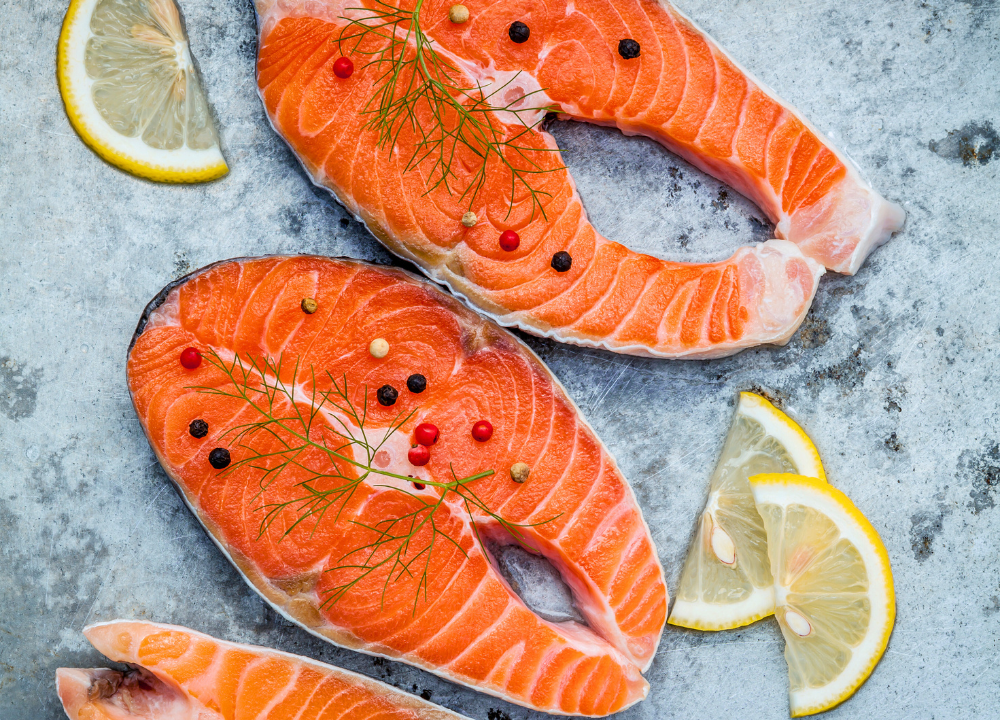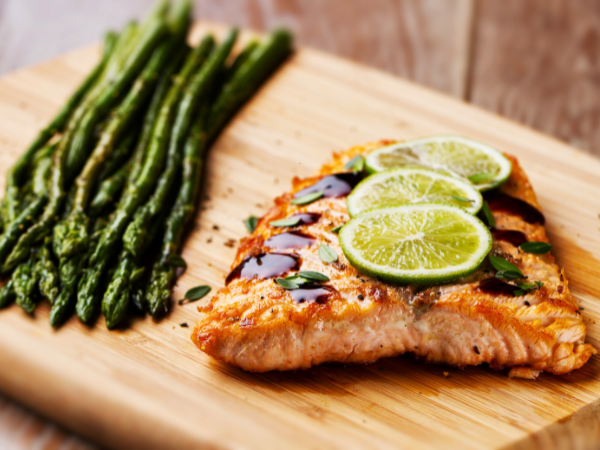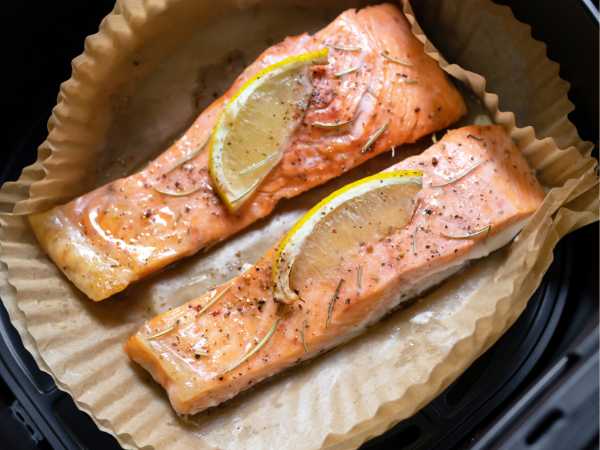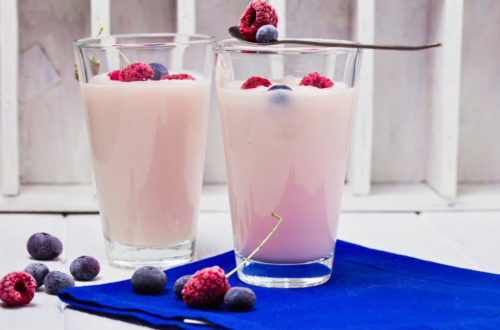
Is Salmon Good for Weight Loss? 6 Surprising Health Benefits of Salmon
Yes, salmon is good for weight loss. It offers numerous health benefits, including high protein content and essential omega-3 fatty acids.
Salmon is a nutrient-dense fish that supports weight loss and overall health. Its rich protein content helps you feel full longer, reducing the urge to snack. Salmon’s omega-3 fatty acids are beneficial for heart health and can improve metabolism. This fish also provides essential vitamins and minerals like Vitamin D and B12, which support energy levels and bone health.
Is Salmon Good For Weight Loss?
This superfood not only aids in shedding pounds but also offers several health benefits. Here, we explore why salmon is an excellent choice for weight loss and how it helps with satiety and cravings.
Why Salmon Is A Top Choice For Weight Loss
Salmon is a powerhouse of nutrients and an excellent addition to any weight loss diet. Here are a few reasons why:
- High Protein Content: Salmon is rich in protein, which is essential for muscle repair and growth. A 100g serving of salmon provides about 25g of protein.
- Omega-3 Fatty Acids: These healthy fats help reduce inflammation, which can promote weight loss. They also support heart health.
- Low in Calories: A 100g serving of salmon contains roughly 206 calories, making it a low-calorie but nutrient-dense option.
- Rich in Vitamins and Minerals: Salmon is loaded with vitamins B12, D, and selenium, which support overall health and metabolism.
Consider the following table for a quick nutritional breakdown of 100g of salmon:
| Nutrient | Amount |
|---|---|
| Calories | 206 |
| Protein | 25g |
| Fat | 13g |
| Omega-3 | 1.5g |
| Vitamin B12 | 3.2mcg |
| Vitamin D | 526 IU |
| Selenium | 36.5mcg |
How Salmon Helps With Satiety And Cravings
Feeling full and satisfied after meals is crucial for weight loss. Salmon excels in this area due to its unique composition:
- High Protein: The protein in salmon helps you feel full longer. This reduces the likelihood of snacking between meals.
- Healthy Fats: The omega-3 fatty acids in salmon help regulate appetite and reduce cravings for unhealthy foods.
- Low Glycemic Index: Salmon has a low glycemic index, meaning it does not cause rapid spikes in blood sugar levels. This helps maintain steady energy levels and prevents sudden hunger pangs.
To illustrate, here’s a simple breakdown of how salmon affects satiety and cravings:
- Protein: Boosts metabolism and reduces appetite.
- Omega-3s: Enhances feelings of fullness and satisfaction.
- Low Glycemic Index: Provides steady energy, reducing the urge to snack.
Incorporating salmon into your diet can help you manage weight effectively by keeping you full and reducing cravings.
6 Surprising Health Benefits Of Salmon
Whether you’re aiming for weight loss or simply want to boost your overall health, incorporating salmon into your diet can be a game-changer.
1. Rich Source Of Omega-3 Fatty Acids
Salmon is a powerhouse of Omega-3 fatty acids, which are essential for your body. These healthy fats can reduce inflammation and improve heart health. They also support brain function and mental health.
- DHA and EPA: Two key types of Omega-3s found in salmon are DHA and EPA. These are crucial for brain development and function.
- Anti-inflammatory properties: Omega-3s can help reduce inflammation in the body, lowering the risk of chronic diseases.
- Improved mental health: Regular intake of Omega-3s has been linked to reduced symptoms of depression and anxiety.
Adding salmon to your diet ensures you get these vital nutrients, which are often lacking in modern diets.
2. High In Protein For Muscle Maintenance
Salmon is an excellent source of high-quality protein, which is essential for muscle maintenance and repair. Protein helps build and repair tissues, making it crucial for athletes and active individuals.
- Muscle growth: Protein is the building block of muscles. Consuming salmon can aid in muscle growth and recovery.
- Satiety: High-protein foods like salmon can help you feel full longer, reducing the chances of overeating.
- Metabolism: Protein has a higher thermic effect compared to fats and carbs, meaning your body burns more calories digesting it.
Including salmon in your meals can provide the protein needed to maintain and build muscle mass.

3. Boosts Metabolism And Fat Burning
Salmon can boost your metabolism and help in fat burning, which is crucial for weight loss. The combination of Omega-3 fatty acids and protein makes salmon a metabolic powerhouse.
- Increases metabolic rate: Protein and Omega-3s can increase your metabolic rate, helping you burn more calories even at rest.
- Fat oxidation: Omega-3s can enhance the process of fat oxidation, making it easier for your body to burn fat.
- Appetite control: The high protein content can help regulate your appetite, preventing unnecessary snacking.
By including salmon in your diet, you can take advantage of these metabolic benefits to aid in weight loss.
4. Low In Calories But Nutrient-dense
Salmon is low in calories but packed with essential nutrients. This makes it an ideal food for weight loss and overall health.
- Calorie count: A 3-ounce serving of salmon contains approximately 200 calories, making it a low-calorie option.
- Vitamins and minerals: Salmon is rich in vitamins B12 and D, selenium, and potassium.
- Nutrient density: Despite being low in calories, salmon is nutrient-dense, providing a wealth of essential nutrients.
Eating salmon allows you to enjoy a nutrient-rich meal without consuming too many calories, aiding in weight loss.
5. Supports Blood Sugar Control
Salmon can help regulate blood sugar levels, making it beneficial for people with diabetes or those at risk. The protein and healthy fats in salmon can stabilize blood sugar levels.
- Low glycemic index: Salmon has a low glycemic index, meaning it doesn’t cause a rapid spike in blood sugar levels.
- Healthy fats: Omega-3 fatty acids can improve insulin sensitivity, making it easier to control blood sugar.
- Protein content: The high protein content can help manage blood sugar levels by slowing down the absorption of sugar.
Incorporating salmon into your diet can support blood sugar control, promoting better health.
6. Improves Heart Health
Salmon is excellent for heart health, thanks to its Omega-3 fatty acids, antioxidants, and other nutrients. These components work together to support cardiovascular health.
- Reduces risk of heart disease: Omega-3s can lower triglycerides and reduce blood pressure, decreasing the risk of heart disease.
- Anti-inflammatory: The anti-inflammatory properties of Omega-3s can protect the heart from damage.
- Antioxidants: Salmon contains astaxanthin, a powerful antioxidant that supports heart health.
Eating salmon regularly can significantly improve heart health, reducing the risk of heart-related issues.

How To Incorporate Salmon Into Your Weight Loss Diet
This section will explore how to incorporate salmon into your weight loss diet effectively.
Healthy Salmon Recipes For Weight Loss
Including salmon in your meals doesn’t have to be complicated. Here are some simple and delicious recipes that can help you stay on track with your weight loss goals:
- Grilled Salmon Salad: Combine fresh greens, cherry tomatoes, cucumbers, and a grilled salmon fillet. Top with a light vinaigrette made from olive oil and lemon juice.
- Baked Salmon with Asparagus: Place salmon fillets and asparagus spears on a baking sheet. Drizzle with olive oil, season with salt and pepper, and bake at 400°F for 20 minutes.
- Salmon and Quinoa Bowl: Mix cooked quinoa with diced vegetables like bell peppers, carrots, and spinach. Add a grilled salmon fillet on top and drizzle with a tahini dressing.
- Salmon Stir-Fry: Stir-fry salmon chunks with broccoli, bell peppers, and snap peas in a little soy sauce and sesame oil. Serve over brown rice or cauliflower rice.
Best Cooking Methods To Maximize Health Benefits
Choosing the right cooking methods can enhance the health benefits of salmon while keeping calories low:
- Grilling: Grilling salmon is a great way to enjoy its natural flavors without adding extra fats. Use a grill mat or foil to prevent sticking.
- Baking: Baking salmon preserves its nutrients and requires minimal added fat. Use herbs and spices to enhance the flavor.
- Poaching: Poaching salmon in water or broth keeps it moist and tender. Add aromatic herbs and a splash of lemon for extra taste.
- Steaming: Steaming is one of the healthiest ways to cook salmon, as it retains most of the nutrients. Use a bamboo steamer or a steaming basket.
Here’s a table summarizing the best cooking methods for salmon:
| Cooking Method | Benefits |
|---|---|
| Grilling | Enhances flavor, minimal added fats |
| Baking | Preserves nutrients, easy to prepare |
| Poaching | Keeps salmon moist, low-calorie |
| Steaming | Retains nutrients, no added fats |
Is Eating Salmon Every Day Good For Weight Loss?
This section delves into the specifics of how frequent salmon consumption can aid in shedding those extra pounds and maintaining optimal health.
How Often Should You Eat Salmon For Maximum Benefits
Eating salmon regularly can be incredibly beneficial for weight loss. But how often should you include salmon in your diet to reap maximum benefits?
Experts suggest consuming salmon at least 2 to 3 times per week. This frequency allows you to enjoy its health benefits without overconsumption. Here’s a brief breakdown:
- 2-3 times per week: Optimal for weight loss, heart health, and brain function.
- Once a week: Provides some benefits but may not be optimal.
- Every day: Generally safe but could lead to mercury accumulation over time.
To better understand the benefits, let’s look at the nutritional profile of a 3.5-ounce (100-gram) serving of salmon:
| Nutrient | Amount |
|---|---|
| Calories | 206 |
| Protein | 22 grams |
| Fat | 12 grams |
| Omega-3 Fatty Acids | 1.8 grams |
| Vitamin B12 | 133% of Daily Value |
| Vitamin D | 82% of Daily Value |
Regularly eating salmon can help you stay full longer, reducing the urge to snack on unhealthy foods. Omega-3 fatty acids in salmon can also boost metabolism, aiding in faster weight loss.
To maximize benefits, pair salmon with a balanced diet rich in vegetables, whole grains, and other lean proteins. Avoid frying salmon, as it adds unnecessary calories. Opt for grilling, baking, or steaming for a healthier alternative.
Is raw salmon good for weight loss?
Yes, raw salmon is rich in protein and healthy fats, making it a nutritious option for weight loss when consumed in moderation.
Is salmon belly good for weight loss?
Salmon belly is higher in fat but contains beneficial omega-3 fatty acids. While it’s healthy, portion control is key if you’re focused on weight loss.
Is salmon sushi good for weight loss?
Salmon sushi can be good for weight loss, but be mindful of added ingredients like rice and sauces, which can increase calories. Opt for sashimi or rolls with less rice for a lighter option.




